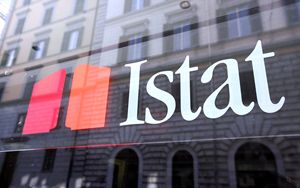(Finance) – According to Istat data released today, consumer confidence fell from 105.4 to 101.6 in October. “A debacle for the Government. Despite the spot measure on the anti-inflation quarter, which started in October, Italians were not enchanted by the useless propaganda initiative, forced every month to have to make ends meet and face the cost of living skyrocketing. In short, the collapse of confidence is a direct consequence of the effect of high costs of living and high bills, which have a heavy impact on both the performance of the country’s economy and that of families” he states Maximilian Donapresident ofNational Consumers Union.
“In fact, expectations are plummeting both on situation economical of Italy, from -27.2 to -42.9, and of the family, from -16.5 to -23.9. Things are not better, however, for the judgment on the economic situation of the family, which is true one of the few non-negative data, remaining substantially stable (from -41.5 to -41.1), but it is only an effect optical, a technical rebound due to the fact that the data had already collapsed in September” concludes Dona.
For Codacons this is an extremely worrying sign, especially on the consumption front. The family confidence index recorded a further decline and that for businesses also decreased. The expensive life which continues to prevail in Italy and the risk of repercussions on energy bills linked to the conflict that broke out in Israel impact on the expectations of consumers and companies – explains Codacons – In the face of these emergencies, the measures launched by the Government, starting from shopping basketdid not produce the desired effects: a worrying sign considering that lower consumer confidence corresponds to a lower propensity for families to spend, which could lead to a crisis in consumption.
“The new decline in business and consumer confidence worries us greatly, but it does not come unexpectedly.” Commenting on the Istat data is the CNA. “What affects business confidence are, in addition to the international situation, theinflation and the cost of money – notes the Confederation – a deadly combination for economic and social performance. It is surprising that despite ten consecutive rate increases decided by the European Central Bank the cost of living is decreasing in slow motion. It is time, therefore, for measures to be adopted against inflation that are different from the usual ones, which have proven to be poorly effective, by intervening on the distortions of the marketstarting with energy, first of all at European level”.
“For the near future we hope that the ECB will reduce i taxi in the presence of possible drops in inflation, instead of not excluding new ones increases. At the same time we suggest the government focus on businesses to relaunch the economy because only businesses are able to innovate, invest and hire. We need simplification measures to the bone, tools suitable for artisans And small businesses, who represent 98 percent of the audience. And a less restrictive credit policy is needed than that adopted by Italian banks, which, as the ECB itself has noted, are even more rigid than their continental competitors. Otherwise – concludes the CNA – the sharp decline in Italian industrial turnover recorded in the first eight months of the year could worsen further in the future”.
The deterioration in the climate of confidence of families and businesses recorded in October is the summary of the difficulty which persist on the real economy side, emphasized by the serious tensions coming from the geopolitical scenario: as stated in a note from the Research Office Confcommercio. The families, who have already begun to be selective in their purchasing decisions for a few months – continues the note – show a deterioration in their personal climate with expectations of a worsening in the coming months. The weakness of the domestic and foreign economic framework has inevitably translatedwith a few exceptions, in a worsening of the climate of business confidence. In this context, the entrepreneurs of the trade traditional appear among those who seem to be looking at the future with particular concern, in line with a worsening of sales and negative expectations.
Overall – concludes the Research Office – the strong economic reduction (-3.6%) in consumer confidence does not appear statistically exceptionalas was the case in March 2022 (-10.3%), after the invasion ofUkraine. However, from a long-term perspective, although the link between consumption and external events is not direct and immediate, consumers’ sensitivity to high intensity exogenous shocks appears to be growing.
The cost of living continues to have a negative impact on company budgets families and on businesses: also the expectations of a good performance of foreign tourist demand, relating to the next long weekend November, are immediately chilled by the Istat findings on the further setback in consumer and business confidence in October. As Confessors in a note.
Today’s data on climate of trust presents us with a turn into highly negative territory and, unfortunately, it couldn’t have gone any other way by also observing the situation internationalwith the worsening of the Middle Eastern conflict and the continuation of the Russian-Ukrainian war and the related consequences on the sources energytogether with the continuation of a still high level of the inflation rate, as underlined by the ECB itself.
